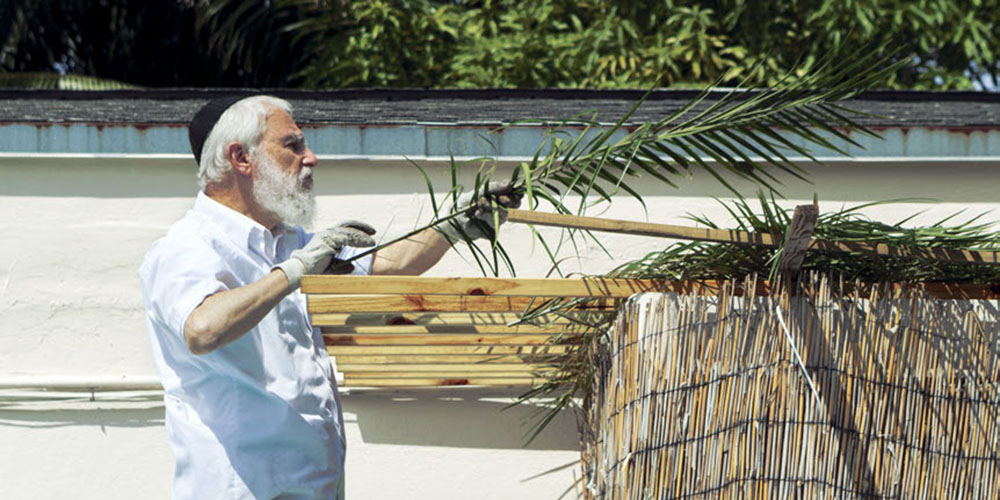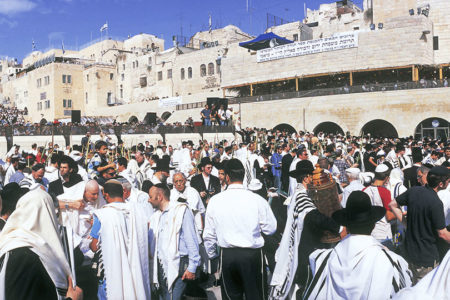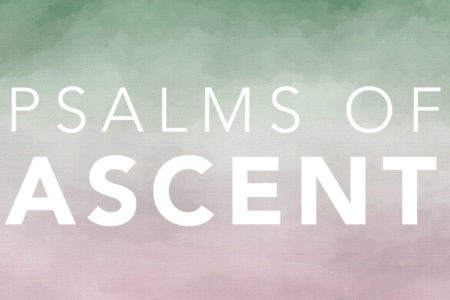Sukkah Shalom: An Invitation
The most joyous season in ancient Israel was that of the Feast of Tabernacles. It fell during the time of year when hearts were naturally full of thankfulness, joy, and expectation.
“On the one hand,” wrote Bible scholar Alfred Edersheim, it reminded the Israelites “of their dwelling in booths in the wilderness, while, on the other hand, it pointed to the final harvest when Israel’s mission should be completed and all nations would be gathered unto the Lord.”1
The Feast of Tabernacles (Sukkot, in Hebrew) is among the holiest and greatest of all the observances. It celebrates the epic event God has promised: the Messianic Kingdom. Some synagogues read Zechariah 14 on the first day, which speaks of the Messiah’s arrival to rescue Israel during a future time of trouble (the Tribulation), crush its enemies, and set up His Kingdom.
This year the seven-day festival2 begins at sundown on September 27.
Sukkot has three main elements: booths, water, and light. They are shadows of things to come (cf. Col. 2:17). Their ultimate fulfillment will be in the Olam Ha Ba, Hebrew for “the world to come”—the Messianic Kingdom.
BOOTHS. Pilgrims traveling to Jerusalem would sing the Songs of Ascents (Ps. 120—134). These Psalms are hopeful and half of them cheerful, which would gladden the pilgrims’ hearts. On arriving, they built temporary structures called sukkot, Hebrew for “booths.” Israel’s mission was to be a witness to and bless all the families of the earth (Gen. 12:3; Dt. 4:5–6).
Each pilgrim was to possess the spirit of a sojourner like Abraham, who focused on his future inheritance in the Kingdom to come:
By faith he dwelt in the land of promise as in a foreign country, dwelling in tents with Isaac and Jacob, the heirs with him of the same promise; for he waited for the city which has foundations, whose builder and maker is God (Heb. 11:9–10).
Like Abraham, believers in Christ should live like strangers and pilgrims in this world (cf. 1 Pet. 1:1), always looking forward to the Blessed Hope (Ti. 2:13).
In the Kingdom, all the families of the earth will be commanded to go up to Jerusalem and join Israel in celebrating the Feast of Tabernacles (Zech. 14:16). The rabbis teach the nations then will dwell under the Sukkah Shalom (“booth of peace”).
LIVING WATERS. The ancient rabbis believed, “He who has not seen the rejoicing at the place of the water-drawing has never seen rejoicing in his life.”
In Jesus’ day, the Feast of Tabernacles included an elaborate water ritual. Each morning of the festival, a priest emerged from the Water Gate on the south side of the Temple, carrying a gold pitcher. He led a joyous procession to the Pool of Siloam in the Old City of David. Then he descended to the pool and drew water into the pitcher while everyone chanted, “Therefore with joy you will draw water from the wells of salvation” (Isa. 12:3).
When he returned to the Temple about the time of the morning sacrifice, someone blew the shofar (ram’s horn). Then another priest, carrying the drink offering of wine, joined him. Together they ascended the ramp of the Great Altar and poured their libations into funnels.
The mixture flowed down to the Kidron Valley. Several other priests, holding willow branches, marched once around the altar, reciting, “Save now (Hoshanah), I pray, O Lᴏʀᴅ; O Lᴏʀᴅ, I pray, send now prosperity” (Ps. 118:25). As the Levites played their musical instruments, the people sang the Hallel: Psalms 113 through 118.
When the ceremony and singing ended, a profound silence descended on the sanctuary. The benediction was said, and everyone returned home to reflect on the significance of what they had seen.
The water ritual was emblematic of the Holy Spirit. Israel’s leaders believed God would pour out the Holy Spirit on Israel and the nations during the Messianic Kingdom. “In that day,” when the Messiah comes with all His saints and His feet stand on the Mount of Olives (Zech. 14:4), luminaries will dim (vv. 6–7) and “living waters shall flow from Jerusalem” (v. 8).
One year, on the final, climactic day of Sukkot, as the Jewish people were expecting the outpouring of God’s Spirit, Jesus stood up and shouted, “If anyone thirsts, let him come to Me and drink” (Jn. 7:37). It was a genuine invitation to all who truly desired life and joy through the Holy Spirit, the true living water (4:10). His invitation still stands today to whosoever will.
GLORIOUS LIGHT. At the Temple’s court of the women, four huge oil lamps were lit each afternoon where pilgrims assembled. The Mishnah says,
Men of piety and good deeds used to dance before them with burning torches in their hands, singing songs and praises. And countless Levites [played] on harps, lyres, cymbals and trumpets and instruments of music, on the fi fteen steps leading down from the Court of the Israelites to the Court of the Women, corresponding to the Fifteen Songs of Ascents in the Psalms (Sukkah 5:4).
The light emphasized the presence of the “glory of the Lᴏʀᴅ,” the Light of all lights (Ex. 40:34), and of the Messiah, the “great light” (Isa. 9:2). In the Kingdom Age, nations will come to the light: “Arise, shine; for your light has come! And the glory of the Lᴏʀᴅ is risen upon you” (60:1). The light of salvation is Israel’s Messiah (cf. Jn. 4:22).
It was during Sukkot that Jesus declared Himself the “light of the world” (Jn. 8:12). At His last meal with His disciples, He took a cup of wine and said, “I will not drink of the fruit of the vine until the kingdom of God comes” (Lk. 22:18).
Jesus will return, but He will come as the Lion of the tribe of Judah; and all the earth will see His light of glory (Mt. 24:27, 30).
Since all things will be holy in the Kingdom (Zech. 14:21), the rabbis teach that entrance into Jerusalem in the world to come is by invitation only (Talmud Baba Bathra 75b; cf. Rev. 21:26–27).
The good news is that Jesus the Messiah issues this invitation:
Come to Me, all you who labor and are heavy laden, and I will give you rest. Take My yoke upon you and learn from Me, for I am gentle and lowly in heart, and you will find rest for your souls. For My yoke is easy and My burden is light (Mt. 11:28–30).
ENDNOTES
- Alfred Edersheim, The Temple: Its Ministry and Services (Eerdmans, Grand Rapids, MI: reprint, 1979), 269.
- The final two days, Shemini Atzeret and Simchat Torah, are actually separate holidays but are thought of as part of Sukkot.






This is very important to understand about the culture of Israel, relating to Bible prophecy. I need more, and may God bless you.